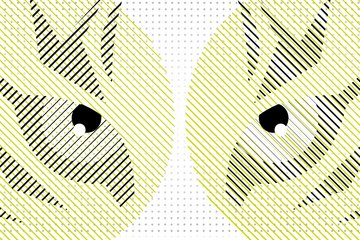
From Outrage to Regulation
On corporate scandals and their legal aftermath
The stuff of corporate scandals – fraud, insolvency, and stock-market crashes – does not immediately smack of progress. But accounting scandals, financial implosions, and business malfeasance have actually been essential determinants of securities and capital market regulation from the very beginning, to the point that this entire body of law is said to comprise the history of attempts – often in response to public pressure following a major scandal – to institute reforms. A series of studies initiated by Institute director Holger Fleischer reckons with the legal fallout from the world’s great corporate scandals.
The most recent example from Germany is the collapse of the Bavaria-based fintech company Wirecard, which resulted in the enactment of the Gesetz zur Stärkung der Finanzmarktintegrität (Act on strengthening the integrity of the financial markets – the “FISG”) in 2021. Wirecard had been the subject of critical reporting in the Financial Times as early as 2015. On 18 June 2020, the payment processor was forced to concede that 1.9 billion euros were missing from its balance sheets, triggering the largest accounting scandal in German history. Around 50,000 shareholders suffered losses and claimed damages totalling around 8.5 billion euros. Criminal proceedings against several former board members are ongoing, as are insolvency proceedings that first opened in August 2020. In October 2020, a committee of the German Bundestag launched an investigation into why the German financial industry regulator BaFin was so slow to pick up the accounting fraud, and the agency’s financial oversight powers were ultimately significantly expanded with the passage of the FISG.
“So far, the widespread phenomenon of scandals driving legal reforms has not been adequately studied,” Fleischer says. “Corporate scandals have been key factors behind legislative reforms. What’s missing are systematic surveys and evaluations of the relationship, both longitudinally as well as across jurisdictional boundaries.” Whereas the major corporate scandals from past and present have been the subject of multiple pop-sci books for lay audiences, academics have generally shunned the topic. Only recently have scholars, from disciplines like economic history, accounting, business administration and finance, begun publishing deeper analyses.
Dynamic processes
The Max Planck Institute in Hamburg has launched a new research series dedicated to the aftermath of accounting, business, and financial scandals in corporate law. Legal scholar and economist Holger Fleischer and his team are undertaking systematic comparative analyses of rulemaking in response to corporate scandals. And insights from a new interdisciplinary field – call it “scandalology” – offer a theoretical framework.
“Scandals are not static. They are dynamic processes,” Fleischer emphasizes. A scandal typically unfolds in four sequential phases. It begins – for obvious reasons – with the breaking of norms. Whatever the activity may be, it need not be illegal to constitute a scandal; all it takes is a breach of some form of standard. The breach comes to light in a series of revelations, the revelations draw public scrutiny, and the scrutiny ultimately culminates in media-fuelled outrage.

„So far, the widespread phenomenon of
scandals driving legal reforms has not been
adequately studied.“
– Institute Director Holger Fleischer –
After a scandal becomes public, narratives about problems at the company and finger-pointing then take over, resulting in a struggle between competing narratives. To track this development, Fleischer and his team compile a sequential analysis of daily newspaper coverage so they can understand how different media outlets covered the scandal on day one, day two, day five, day ten etc. “Whether and how a scandal eventually results in the passage of laws depends heavily on public perceptions,” Fleischer says. The principals may face civil or criminal penalties; but if the scandal attracts the right kind of publicity, lawmakers may begin trying to pass reforms.
Rich context
“The study of scandals thrives on incorporating the broader contemporary historical context,” Fleischer says. “Each individual corporate scandal is worth studying in its own right. The law faculties can take a cue from their business school colleagues in this regard, who have been mining case studies as a source of insight for more than a hundred years.” Fleischer’s team look at the economic, political and social context of every case they study. They also look closely at the individuals responsible for the scandal and their motivations. Other important questions are how the scandal came to light and who got hurt. And last but not least, the researchers are ultimately very interested in the conditions that prompt legislatures to respond by enacting reforms.
Historical depth
That scandals should lead to the passage of laws is nothing new. Exactly three hundred years before the collapse of Wirecard, London was the scene of a financial scandal that, Fleischer says, was crucial to the development of corporate law far beyond the jurisdiction of England. The scandal involved the South Sea Company, which was set up as a joint-stock company to refinance debts of the Crown. The company’s empty promises about its prospects in the “South Sea” trade caused a speculation bubble. When the bubble burst in 1720, it caused a stock market crash. A few months earlier, Parliament had enacted the Bubble Act, which forbade the creation of new joint-stock companies. But it was not enough to stave off the collapse of the South Sea Company; the effect of the new law was indeed to inflate the value of the company, which rose unabated, ultimately making the collapse more devastating. So, as a matter of economic history, the Bubble Act reads not as a reaction to the collapse of the London Stock Exchange but rather as a failed preventive measure. It was embedded in a context of shady dealings and scandal as large numbers of investors saw their positions wiped out due to fraud and bribery.
„Each corporate scandal is a lesson collectively learned.
For the most part, we are just beginning to subject them to systematic
comparative scholarship. There are a range of theoretical perspectives
from which they can be productively analysed.“
– Institute Director Holger Fleischer –
The chronology of scandal-induced legal reforms in Germany goes back to the late nineteenth and early twentieth century, an era in which four major scandals shook Imperial Germany and the Weimar Republic and permanently changed the face of German banking, accounting, securities and stock corporation law as failed railroad financing schemes, stalled real estate development projects, and sham corporations precipitated the first round of amendments to the law of stock corporations in 1884 and thereby facilitated the birth of modern German stock corporation law. A series of misappropriations by a private commercial banker in Berlin led to the enactment of the German Depotgesetz (Securities Deposit Act) and the Börsengesetz (Stock Exchange Act) of 1896. In 1931, the fraud-driven collapse of the Frankfurter Allgemeinen Versicherung AG resulted in amendments to the Versicherungsaufsichtsgesetz (Insurance Supervision Act) and to the introduction of annual financial audits for big insurance companies. Out of the tandem collapse of Nordwolle, once Europe’s largest wool company, and its principal bank, Danatbank, also in 1931, came an emergency decree that reformed the practice of share buy-backs and required all stock corporations to submit to independent audits of their annual financial statements. This was also the first instance of centralized oversight in the banking sector.
The collapse of Cologne-based Herstatt Bank and the second round of amendments to the German Kreditwesengesetz (Banking Act) in 1976 was one of the notable events in West Germany during the post-war period. After reunification, various affairs, involving the Bielefeld sports-flooring manufacturer Balsam, the Bremen shipyard Vulkan, the construction company Philipp Holzmann, and Frankfurt-based Metallgesellschaft AG led to the passage of the German Gesetz zur Kontrolle und Transparenz im Unternehmensbereich (Corporate Control and Transparency Act – the “KonTraG”) in 1998. A series of scandals following the rapid growth of the new economy and the dotcom bubble led the Bundestag to enact the fourth Finanzmarktförderungsgesetz (Financial Markets Promotion Act) in 2002. The Siemens corruption scandal of 2006 marked the dawn of the age of compliance in Germany. Dieselgate – the Volkswagen emissions scandal – triggered an avalanche of national and international litigation in 2015, propelling both the passage of the EU Representative Actions Directive, to ensure that consumers can protect their collective interests, as well as the introduction of the Leitentscheidungsverfahren (“leading decision procedure”) at the German Federal Court of Justice.
Successes, lessons learned, and outlook
While the historical analysis of corporate scandals reads like a roadmap of modernization, the particular analysis of each case reaps the benefit of hindsight: Were the resulting rules and regulations effective? For example, scandal-driven rulemaking was an unequivocal success in the Notverordnung (emergency decree) of 1931, which represents an important achievement in stock company law – it’s the reason we now have mandatory audits. Overall, “the success, or lack thereof, of legal reforms itself requires analysis,” Fleischer says. “Each corporate scandal is a lesson collectively learned. For the most part, we are just beginning to subject them to systematic comparative scholarship. There are a range of theoretical perspectives from which they can be productively analysed, and in any event, it looks like there will be no shortage of scandals to study now or in the future.”
Further reading
Holger Fleischer, Michael Zeller, Der FAVAG-Skandal und die Geburtsstunde der Abschlussprüfer
– Skandalgetriebene Regulierung in der Weimarer Republik, in: Festschrift für Walter Paefgen,
2025, 121-140.
Holger Fleischer, Gründerkrach, Gründerkrise und Gründerskandale im Kaiserreich, in:
Gedächtnisschrift für Gerald Spindler, 2025, 233-248.
Images:
Header graphic: Elements form © AdobeStock, accogliente and Loya.art
Portrait Holger Fleischer: © Max Planck Institute for Comparative and International Private Law / Johanna Detering












